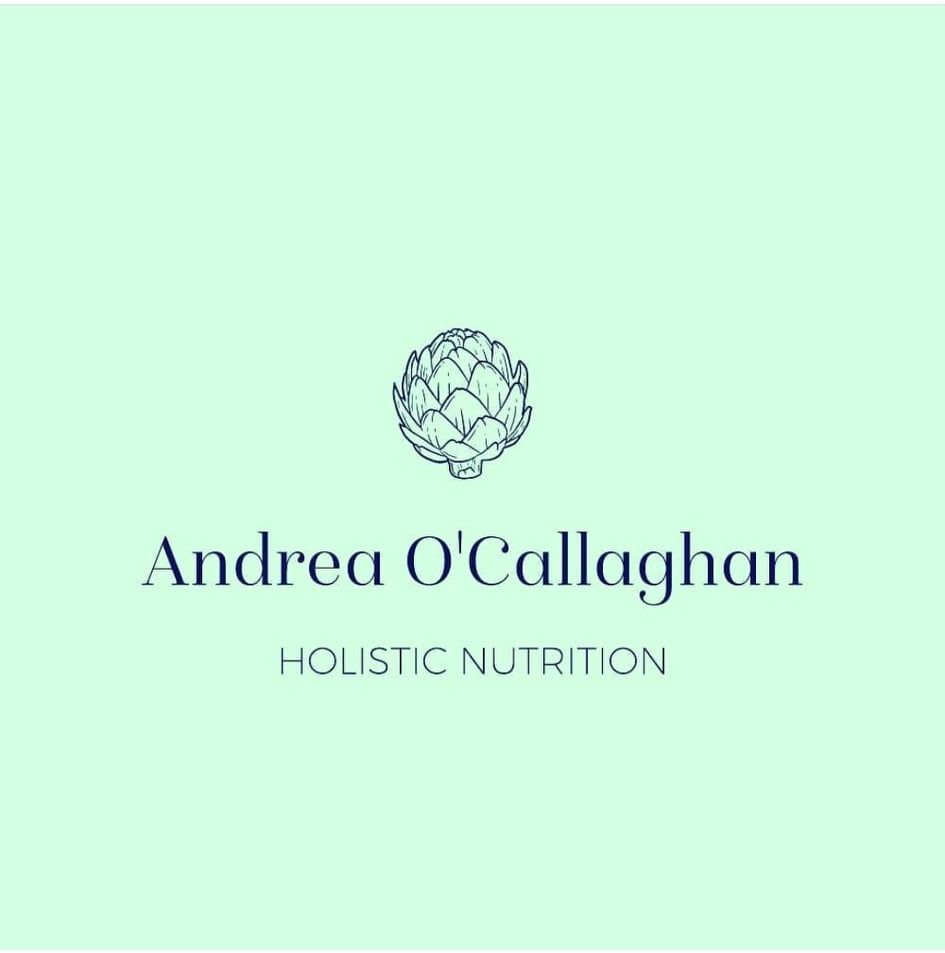PROBIOTICS FOR MOODS AND STRESS? YES!
Andrea O'Callaghan • May 2, 2020
What do you do when your mood is off or you’re stressed to the max?Eat ice cream? Binge watch Netflix? Call your best friend?
After reading this article, you may consider yogurt, a handful of walnuts, or maybe even some dark chocolate as your go-to mood-boosters and stress-busters.
Today, we’ll unpack some of the exciting (and preliminary) new research about the link between your gut health and moods/stress.
We’ll talk about your friendly resident gut microbes (mostly bacteria), probiotic foods and supplements, as well as foods to feed those gut microbes and probiotics (aka “prebiotics”).
WHAT THE HECK ARE “GUT MICROBES?”
Oh, our friendly “gut microbes.”
They are the trillions of microbes that happily live in our gut. They help us by digesting foods, making vitamins, and even protecting us from the not-so-friendly microbes that may get in there.
Believe it or not, these friendly microbes have mood-boosting and stress-busting functions too!
FUN FACT: There are more microbes inside our gut, than all of the human cells that make us. Yup, we’re more than half microbe! So, how can they NOT impact our health?
It’s a hotbed of research right now and we’re finding out more about their awesome health, and mood/stress, benefits every day.
And, while the research is just starting to figure out the many gut microbe-brain connections, it’s such a cool new topic that I couldn’t wait to share it with you!
GUT MICROBES AND PROBIOTICS
The microbes that live in our guts are known as our “gut microbiota”.
The microbes that we can ingest are known as “probiotics”.
“Probiotics” are live organisms that you can eat, drink, or take as a supplement. They’re what turn milk into yogurt, and cabbage into sauerkraut; and they are great for both your gut health and mental health.
Special probiotics that have mental health benefits are called “psychobiotics,” (psycho = mental health, and biotics = live). They’re live organisms that can benefit our psyche.
So, what’s the link between gut microbes, probiotics, and moods/stress?
BAD MOODS/STRESS CAN MEAN BAD MICROBES
Stress can affect our friendly gut microbes.
Several studies show that stressed rodents not only have increased stress hormones and stressed behaviours; but, they also have different gut microbes!
And this has been studied, to a small extent, in people too.
One study showed that moms with high levels of stress hormones during pregnancy had infants with more of the “bad” gut microbes.
But, can it work the other way around? Can changing our gut microbes affect our moods and stress responses?
Studies of rodents that grow up without any gut microbes at all (in a “bacteria-free” environment) respond to stress more than mice with normal gut microbes. Then, when they’re given either a probiotic or gut microbes from non-stressed mice, their stress responses often go back to normal.
The gut microbe, probiotic, and mood/stress connections are starting to get interesting, aren’t they?
BAD MICROBES CAN MEAN BAD MOODS
“Gut microbiota and probiotics alter behavior and brain neurochemistry.” (Ait-Belgnaoui, et. al., 2012)
That’s a pretty powerful statement, don’tcha think?
Many animal studies show positive effects on behaviour when they get probiotic supplements.
For example, after a probiotic, stressed rats had lower levels of both stress hormones and an inflammatory molecule associated with depression (“LPS” - lipopolysaccharide).
Human studies show that after a few weeks of taking probiotic foods or supplements, healthy people have reduced stress hormones, feelings of stress, negative thoughts, and sad moods.
One fascinating study showed that when people took probiotics, brain MRI (magnetic resonance imaging) tests showed reduced brain activity for negative and aggressive thoughts!
So, as you can see, there is some exciting research on the positive effect that probiotics can have on moods and stress.
You might be wondering how exactly your gut can influence your moods...
HOW IS THIS GUT-BRAIN CONNECTION POSSIBLE?
It may not seem obvious or intuitive, but your body is interconnected in many ways.
And more and more research is figuring out the “microbiota-gut-brain axis.” It’s the very complex connection between your gut, its microbes, and your brain.
This new field has been called a “paradigm shift in neuroscience” (Dinan, 2017).
In fact, there are a number of ways that we’re beginning to understand how our gut microbes can affect our brain.
One is via the “vagus” nerve, which is a nerve that directly connects your gut to your brain.
The other ways are through “biochemical messengers.” Biochemicals that are made in your gut and travel through the body to communicate with other parts, including your brain. Biochemicals like short chain fatty acids, cytokines, and even tryptophan (the amino acid that the neurotransmitters melatonin and serotonin are made from).
The exciting thing is that this may help us with not only moods and stress, but the microbiota-gut-brain axis may one day prove to be helpful for other conditions like autism and Parkinson’s.
So, your trillions of gut microbes seem to be more closely interconnected with our moods than we used to think.
So, what can you do to nurture your own healthy gut microbes?
HOW TO NURTURE HEALTHY GUT MICROBES - PROBIOTICS
First, eat (and drink) probiotics.
Probiotics can be eaten in yogurt, sauerkraut (and other fermented veggies), miso, tempeh, and kimchi. You can drink them in kefir or kombucha. Be sure to choose unpasteurized ones that will be refrigerated in your local grocer.
Of course, there are a number of probiotic supplements available too. Look for one that’s refrigerated and has at least 10 billion active cultures. I also suggest you look for one that has been “third party tested,” which means someone outside the company has tested it and says it’s a quality product.
Oh, and always read the label before taking any supplements.
The probiotics with the most research are of the Bifidobacterium and Lactobacillus types. But we still don’t know enough about the psychobiotic effects to make specific mood-boosting recommendations...just yet.
HOW TO NURTURE HEALTHY GUT MICROBES - PREBIOTICS
Second, consider that our resident gut microbes don’t just live inside us to help us - they get something out of the deal too.
Food!
PREbiotics are “compounds that, when fermented in the gut, produce specific changes in bacterial composition or activity”. They are your friendly gut microbes’ favourite delicacies so they’ll happily grow, and multiply.
Prebiotics are basically foods that contain fibre. Things like fruits, vegetables, nuts, and seeds. Even dark chocolate (preferably with at least 70% cocoa).
Giving animals prebiotics can reduce stress hormones, and anxiety-related behaviours.
And in people, studies show that taking psychobiotics along with prebiotics can improve both the microbes in our gut, as well as our mood.
How amazing is that?
CONCLUSION
The science behind interactions of gut microbes and mental health is still new and ongoing. Much of it is in rodents, with a few studies in people. Some show interesting links and promising potential to help with moods and other areas of mental and brain health.
More research, especially in humans, is needed; so I’ll be on the lookout for new studies in this young and promising area of mood-boosting and stress-busting nutrition.
What if one day we were able to help mental health by fixing gut health? What an amazing, and less moody, world that could be!
Try eating more probiotics like in yogurt, kefir, miso, kimchi, and kombucha. Consider taking probiotic supplements (making sure you read the label and follow directions).
And don’t forget their favourite foods called prebiotics. Those are in fruits, vegetables, nuts and seeds (and even dark chocolate).
Optimize your gut for more than just gut health, but mood-boosting and stress-busting too.
Buh bye blah moods.
REFERENCES
Ait-Belgnaoui, A., Durand, H., Cartier, C., Chaumaz, G., Eutamene, H., Ferrier, L., Houdeau, E., Fioramonti, J., Bueno, L. & Theodorou, V. (2012). Prevention of gut leakiness by a probiotic treatment leads to attenuated HPA response to an acute psychological stress in rats. Psychoneuroendocrinology. 37(11):1885-95. doi: 10.1016/j.psyneuen.2012.03.024.
Bailey, M.T., Dowd, S.E., Galley, J.D., et al. (2011). Exposure to a social stressor alters the structure of the intestinal microbiota: implications for stressor-induced immunomodulation. Brain Behav Immun. 25(3):397–407.
Bharwani A, Mian MF, Foster JA, et al. (2016). Structural & functional consequences of chronic psychosocial stress on the microbiome & host. Psychoneuroendocrinology. 63:217–227.
Cryan, J.F. (2016). Stress and the Microbiota-Gut-Brain Axis: An Evolving Concept in Psychiatry.
Can J Psychiatry. 61(4):201-3. doi: 10.1177/0706743716635538.
De Palma, G., Blennerhassett, P., Lu, J., Deng, Y., Park, A.J., Green, W., Denou, E., Silva, M.A., Santacruz, A., Sanz, Y., Surette, M.G., Verdu, E.F., Collins, S.M. & Bercik, P. (2015). Microbiota and host determinants of behavioural phenotype in maternally separated mice. Nat Commun. 2015 Jul 28;6:7735. doi: 10.1038/ncomms8735.
Dinan, T.G. & Cryan, J.F. (2016). Mood by microbe: towards clinical translation. Genome Med. 8(1):36. doi: 10.1186/s13073-016-0292-1.
Dinan TG1, Cryan JF. (2017). The Microbiome-Gut-Brain Axis in Health and Disease. Gastroenterol Clin North Am. 2017 Mar;46(1):77-89. doi: 10.1016/j.gtc.2016.09.007.
Kelly, J. R., Kennedy, P. J., Cryan, J. F., Dinan, T. G., Clarke, G., & Hyland, N. P. (2015). Breaking down the barriers: the gut microbiome, intestinal permeability and stress-related psychiatric disorders. Frontiers in Cellular Neuroscience, 9, 392.
Messaoudi, M., Lalonde, R., Violle, N., Javelot, H., Desor, D., Nejdi, A., Bisson, J.F., Rougeot, C., Pichelin, M., Cazaubiel, M. & Cazaubiel, J.M. (2011). Assessment of psychotropic-like properties of a probiotic formulation (Lactobacillus helveticus R0052 and Bifidobacterium longum R0175) in rats and human subjects. Br J Nutr. 105(5):755-64. doi: 10.1017/S0007114510004319.
O’Mahony, S.M., Marchesi, J.R., Scully, P., et al. (2009). Early life stress alters behavior, immunity, and microbiota in rats: implications for irritable bowel syndrome and psychiatric illnesses. Biol Psychiatry. 65(3):263–267.
Rea, K., Dinan, T.G. & Cryan, J.F. (2016). The microbiome: A key regulator of stress and neuroinflammation. Neurobiol Stress. 4:23-33.
Rieder, R., Wisniewski, P.J., Alderman, B.L. & Campbell, S.C. (2017). Microbes and mental health: A review. Brain Behav Immun. 2017 Jan 25. pii: S0889-1591(17)30016-8. doi: 10.1016/j.bbi.2017.01.016.
Romijn, A.R. & Rucklidge, J.J. (2015). Systematic review of evidence to support the theory of psychobiotics. Nutr Rev. 73(10):675-93. doi: 10.1093/nutrit/nuv025.
Sarkar, A., Lehto, S.M., Harty, S., Dinan, T.G., Cryan, J.F. & Burnet, P.W. (2016). Psychobiotics and the Manipulation of Bacteria-Gut-Brain Signals. Trends Neurosci. 39(11):763-781. doi: 10.1016/j.tins.2016.09.002.
Sender, R., Fuchs, S. & Milo, R. (2016). Revised Estimates for the Number of Human and Bacteria Cells in the Body. PLoS Biol 14(8): e1002533. doi:10.1371/journal.pbio.1002533
Sherwin, E., Sandhu, K.V., Dinan, T.G. & Cryan, J.F. (2016). May the Force Be With You: The Light and Dark Sides of the Microbiota-Gut-Brain Axis in Neuropsychiatry. CNS Drugs. 2016 Nov;30(11):1019-1041. doi: 10.1007/s40263-016-0370-3
Steenbergen, L., Sellaro, R., van Hemert, S., Bosch, J.A. & Colzato, L.S. (2015). A randomized controlled trial to test the effect of multispecies probiotics on cognitive reactivity to sad mood.
Brain Behav Immun. 48:258-64. doi: 10.1016/j.bbi.2015.04.003.
Zijlmans, M.A., Korpela, K., Riksen-Walraven, J.M., de Vos, W.M. & de Weerth, C. (2015). Maternal prenatal stress is associated with the infant intestinal microbiota. Psychoneuroendocrinology. 2015 Mar;53:233-45. doi: 10.1016/j.psyneuen.2015.01.006.

The formula is simple: Diverse diet = Diverse microbes = Good health . That is all we have to do help improve our gut health. The problem is we do not have a diverse diet. I remember when I used to eat the same thing for breakfast EVERY DAY when I was in high school, for example (we won't dwell too long on the fact that it was cinnamon sugar toast) . Even as I got more health conscious and upgraded my breakfasts to include smoothies, I would make a smoothie every morning! Definitely an improvement over cinnamon sugar toast, but the same thing every day is not ideal, either. This is not just about a processed diet vs whole food diet. Yes, a processed food diet is bad for our good microb es, but a whole food diet that is not diverse can also be problematic for the diversity of our gut. Most of us consume no more than 15 different foods in a week. This is not diversity, even if we hit all the food groups. Then there are those who choose to el iminate food groups such as grains and legumes. T his is taking out a range of substantial foods that will feed many beneficial bacterial species. And believe it or not, there are still people – adult people – who refuse to eat vegetables, and they are prou d of it. Again, vegetables represent all kinds of foods that will feed a lot of different species. This is just basic diversity, and it gets more complicated. So not only do we all need to be more adventurous and try to eat different foods, we need to eat d ifferent varieties of the same food. This is one of biggest changes we have had in our diets that make us different from our ancestors. They ate a greater variety of foods than we eat today, and they grew different varieties of the same food. This was g ood for the soil, it helped protect them against potential crop loss, and it increased the nutrients available to them in their diet. J ust like with money, it is important to diversify. Today, agriculture does not function that way. Farmers grow few crop types, and seldo m do they grow more than one variety of the same crop. There are over 6000 varieties of tomatoes – each one has different properties and a different nutrient composition!! We are missing out on a lot. And while we cannot possibly consume 6000 different vari eties, we can expand our repertoire, especially in the summer, and seek out as many varieties as we can find. Heirloom varieties are something I get really excited about when it comes to growing things in my own garden. So while researchers continue to unravel the mystery of our gut and figure out what we should feed it, specifically for specific benefits, we can d o more to increase the diversity and build a stronger gut by eating new foods. This week, buy three new foods you do not eat regularly. They can be foods you have never had or foods you like but for some reason never buy. Here are a few things you can do t o diversify: Buy yellow or rainbow beets instead of red beets. Choose purple or white carrots instead of orange. Look for heritage varieties and buy them when you find them. Go to farmer’s markets and talk to the local farmers. Generally, these are the farmers who still grow a variety of crops. Let them know you are interested in trying different varieties of tomatoes or potatoes etc. Shop at ethnic stores and look for new grains and legumes. Go to ethnic restaurants - this way someone else can prepare the foods for you. Think of the fun and adventure you can have – you and your microbes will be happier!! Reference: Mark L. Heiman, Frank L. Green way. A healthy gastrointestinal microbiome is dependent on dietary diversity. Molecular Metabolism, 2016; DOI: 10.1016/j.molmet.2016.02.005


